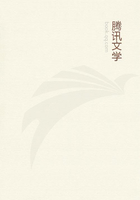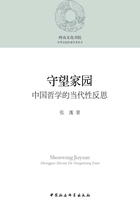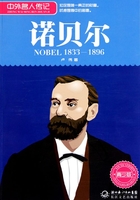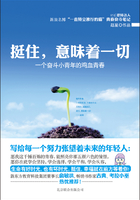Brisk young bagmen, tourists fine, Old commuters along the line, Brakemen and porters glanced ahead, Smiled as the signal, sharp, intense, Pierced through the shadows of Providence:
"Nothing amiss--Nothing!--it is Only Guild calling his wife," they said.
Summer and winter the old refrain Rang o'er the billows of ripening grain, Pierced through the budding boughs o'erhead, Flew down the track when the red leaves burned Like living coals from the engine spurned;
Sang as it flew, "To our trust true, First of all, duty. Good-night!" it said.
And then, one night, it was heard no more From Stonington over Rhode Island shore, And the folk in Providence smiled and said As they turned in their beds, "The engineer Has once forgotten his midnight cheer."
ONE only knew, To his trust true, Guild lay under his engine, dead.
ASPIRING MISS DE LAINE
(A CHEMICAL NARRATIVE)
Certain facts which serve to explain The physical charms of Miss Addie De Laine, Who, as the common reports obtain, Surpassed in complexion the lily and rose;
With a very sweet mouth and a retrousse nose;
A figure like Hebe's, or that which revolves In a milliner's window, and partially solves That question which mentor and moralist pains, If grace may exist minus feeling or brains.
Of course the young lady had beaux by the score, All that she wanted,--what girl could ask more?
Lovers that sighed and lovers that swore, Lovers that danced and lovers that played, Men of profession, of leisure, and trade;
But one, who was destined to take the high part Of holding that mythical treasure, her heart,--This lover, the wonder and envy of town, Was a practicing chemist, a fellow called Brown.
I might here remark that 'twas doubted by many, In regard to the heart, if Miss Addie had any;
But no one could look in that eloquent face, With its exquisite outline and features of grace, And mark, through the transparent skin, how the tide Ebbed and flowed at the impulse of passion or pride,--None could look, who believed in the blood's circulation As argued by Harvey, but saw confirmation That here, at least, Nature had triumphed o'er art, And as far as complexion went she had a heart.
But this par parenthesis. Brown was the man Preferred of all others to carry her fan, Hook her glove, drape her shawl, and do all that a belle May demand of the lover she wants to treat well.
Folks wondered and stared that a fellow called Brown--Abstracted and solemn, in manner a clown, Ill dressed, with a lingering smell of the shop--Should appear as her escort at party or hop.
Some swore he had cooked up some villainous charm, Or love philter, not in the regular Pharm-Acopoeia, and thus, from pure malice prepense, Had bewitched and bamboozled the young lady's sense;
Others thought, with more reason, the secret to lie In a magical wash or indelible dye;
While Society, with its censorious eye And judgment impartial, stood ready to damn What wasn't improper as being a sham.
For a fortnight the townfolk had all been agog With a party, the finest the season had seen, To be given in honor of Miss Pollywog, Who was just coming out as a belle of sixteen.
The guests were invited; but one night before A carriage drew up at the modest back door Of Brown's lab'ratory, and, full in the glare Of a big purple bottle, some closely veiled fair Alighted and entered: to make matters plain, Spite of veils and disguises, 'twas Addie De Laine.
As a bower for true love, 'twas hardly the one That a lady would choose to be wooed in or won:
No odor of rose or sweet jessamine's sigh Breathed a fragrance to hallow their pledge of troth by, Nor the balm that exhales from the odorous thyme;
But the gaseous effusions of chloride of lime, And salts, which your chemist delights to explain As the base of the smell of the rose and the drain.
Think of this, O ye lovers of sweetness! and know What you smell when you snuff up Lubin or Pinaud.
I pass by the greetings, the transports and bliss, Which of course duly followed a meeting like this, And come down to business,--for such the intent Of the lady who now o'er the crucible leant, In the glow of a furnace of carbon and lime, Like a fairy called up in the new pantomime,--And give but her words, as she coyly looked down In reply to the questioning glances of Brown:
"I am taking the drops, and am using the paste, And the little white powders that had a sweet taste, Which you told me would brighten the glance of my eye, And the depilatory, and also the dye, And I'm charmed with the trial; and now, my dear Brown, I have one other favor,--now, ducky, don't frown,--Only one, for a chemist and genius like you But a trifle, and one you can easily do.
Now listen: to-morrow, you know, is the night Of the birthday soiree of that Pollywog fright;
And I'm to be there, and the dress I shall wear Is TOO lovely; but"-- "But what then, ma chere?"
Said Brown, as the lady came to a full stop, And glanced round the shelves of the little back shop.
"Well, I want--I want something to fill out the skirt To the proper dimensions, without being girt In a stiff crinoline, or caged in a hoop That shows through one's skirt like the bars of a coop;
Something light, that a lady may waltz in, or polk, With a freedom that none but you masculine folk Ever know. For, however poor woman aspires, She's always bound down to the earth by these wires.
Are you listening? Nonsense! don't stare like a spoon, Idiotic; some light thing, and spacious, and soon--Something like--well, in fact--something like a balloon!"
Here she paused; and here Brown, overcome by surprise, Gave a doubting assent with still wondering eyes, And the lady departed. But just at the door Something happened,--'tis true, it had happened before In this sanctum of science,--a sibilant sound, Like some element just from its trammels unbound, Or two substances that their affinities found.
The night of the anxiously looked for soiree Had come, with its fair ones in gorgeous array;
With the rattle of wheels and the tinkle of bells, And the "How do ye do's" and the "Hope you are well's;"

